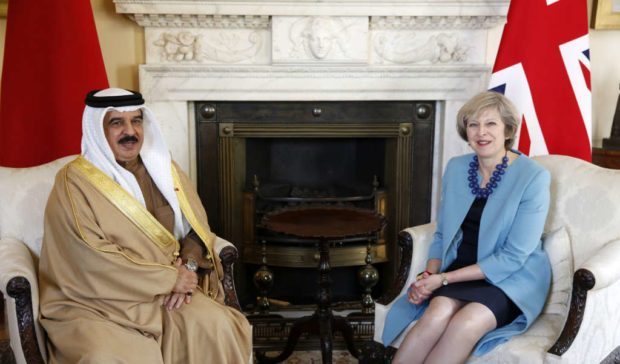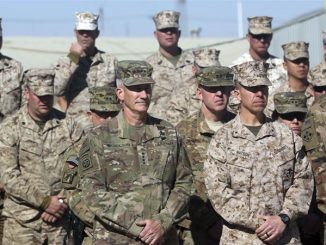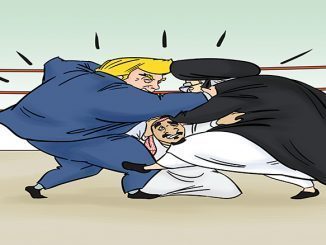
As the first UK prime minister and female politician to attend the six-nation Gulf Co-operation Council, the British Prime Minister Theresa May will travel to Bahrain this week for a meeting of the Gulf Cooperation Council, which will begin tomorrow in Manama.
According to officials statements, Theresa May will attend a dinner with the leaders of Saudi Arabia, Kuwait, the United Arab Emirates, Qatar, Bahrain, and Oman on Tuesday evening, before addressing the plenary session on Wednesday morning.
Reasons behind the controversial visit
Theresa May who was appointed prime minister shortly after Britain voted to leave the EU at a June referendum, focus her efforts on making the country a leader in trade after Brexit.
British media reported that this visit’s main aim is to cement stronger ties with Middle Eastern countries as Britain leaves the European Union, by pursuing to gain £30billion of “high-value opportunities” for British businesses after Brexit, said Mirror British newspaper.
Furthermore, Theresa May will announce a space technology tie-up with Abu Dhabi and new multiple five-year visa entry system for UK firms doing business in Saudi Arabia.
“As the United Kingdom leaves the EU, I am determined to forge a bold, confident future for ourselves in the world,” May said in a statement before the meeting which will be held tomorrow evening with the leaders of Saudi Arabia, Kuwait, the United Arab Emirates, Qatar, Bahrain, and Oman.
Following Theresa May political, she does not care about human rights, all she cares is about money and economics.
BBC reported that the British Prime Minister knows that some people in UK would argue the UK should not seek to strengthen ties with the Guls states because of their controversial human rights records, but in fact, Mrs May continues to support Gulf Countries for the sake of money.
Human rights groups called on May to change her policy
Human rights groups, such as Human Rights Watch, have called on May to raise concerns at the meeting in Bahrain, where they accuse the government of attacking the rights to free expression, assembly, and association.
Although these action groups including Human Rights Watch, Reprieve and the Bahrain Institute for Rights and Democracy (BIRD), wrote to Mrs May urging her to press Bahrain on legal and political reforms.
she said in a statement: “If your government is serious about its commitment to encouraging reform and dialogue, you should use this influence to press the government of Bahrain to put an immediate stop to this repression.”
Theresa may’s policy toward the Gulf countries came in parallel with her last declaration which focuses on the economics benefits for the UK.
“As the UK leaves the EU, we should seize the opportunity to forge a new trade arrangement between the UK and the Gulf,” Theresa May said citing The Guardian.
She also added, “This could transform the way we do business and lock in a new level of prosperity for our people.”
In her statements, May outlined the way to help on human rights was to engage “with these countries and working with them to encourage and support their plans for reform”.
Since the UK is the second biggest arms dealer in the world and Saudi Arabia is it’s biggest customer, it seems that Theresa May’s policies of commitment to defending human rights and encouraging reform and dialogue, are rather strange.
In September, Theresa May has staunchly defended selling arms to Saudi Arabia despite the country facing accusations of war crimes, insisting close ties “keep people on the streets of Britain safe”.
These statements came after Jeremy Corbyn, leader of the opposition in the UK Parliament, called on the Prime Minister to halt those sales because of the “humanitarian devastation” caused by a Saudi-led coalition waging war against rebels in Yemen.



